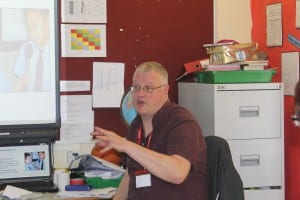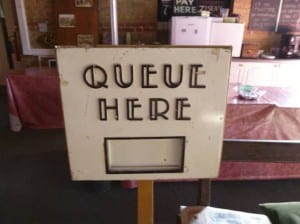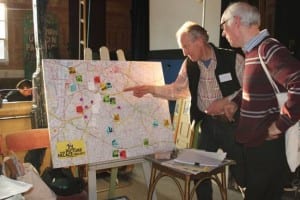Dig Where We Stand goes to school
By Sarah B Dhanjal, on 25 March 2013
Andrew Flinn and Sarah Dhanjal went back to school on 12th March. Here’s Sarah’s account of the day:
The artist Alda Terracciano from Aldaterra (http://aldaterra.com/projects/the-living-archaeology-of-the-place/) asked DWWS to visit a school in Tulse Hill to talk to Year 2 and Year 4 about different ways of doing history. As an archaeologist (me) and a historian (Andrew), we had so much we could fit into a session and definitely not enough time! The Aldaterra project “The Living Archaeology of the Place” is looking at stories of the Afro-Brazilian experience in London. After some discussion we decided to concentrate on oral history as most relevant to the project.
Our learning objectives were:
– there are different ways of finding out about the past
– there are different jobs people can do to find out about the past
– oral history involves interviewing people about their lives
– oral histories are recorded so other people can benefit from them.
We introduced ourselves to the class and gave a short introduction to UCL and universities. With the class, we discussed archaeology, oral history and the many different ways we can find out about the past. We were able to use our academic backgrounds to show that you can study various subjects and do different jobs to help add to our shared understanding of the past. We then focused on what sort of questions an oral historian might ask. Using two examples of people born before World War II, we discussed what might have happened to them, what they would be able to tell us about their own lives and the important events they lived through. The pupils had some brilliant ideas for questions and enthusiastically engaged with the task.
For the main activity we split the class into three groups and asked each group to formulate questions to ask the adult working with their group. We discussed the need to ask questions that would make the person being interviewed feel comfortable with being recorded. We also thought about the questions that we need to ask to make sure we capture all the important information we are looking for on the recording. Finally we encouraged the pupils to think of questions that would make their interviewees reflect on the past rather than the present. The children already wanted to find out more about us, so it was a good chance to channel some of their curiosity!
We then recorded interviews between the children and their adults. The questions were great, exploring a wide range of our life experiences and interests:
“Has anyone in your family died?”
“How did you feel when you went to university?”
“What countries have you visited?”
“Did you go to this school?”
“Where did you meet your wife and why did she come to this country?”
“What is your favourite ice cream flavour?”
We finished by sharing some of the recordings with the whole class and discussing how they could use oral history in their project with Aldaterra.
We had a great time and we’d like to thank Aldaterra and all the teachers and pupils at the school.
 Close
Close





